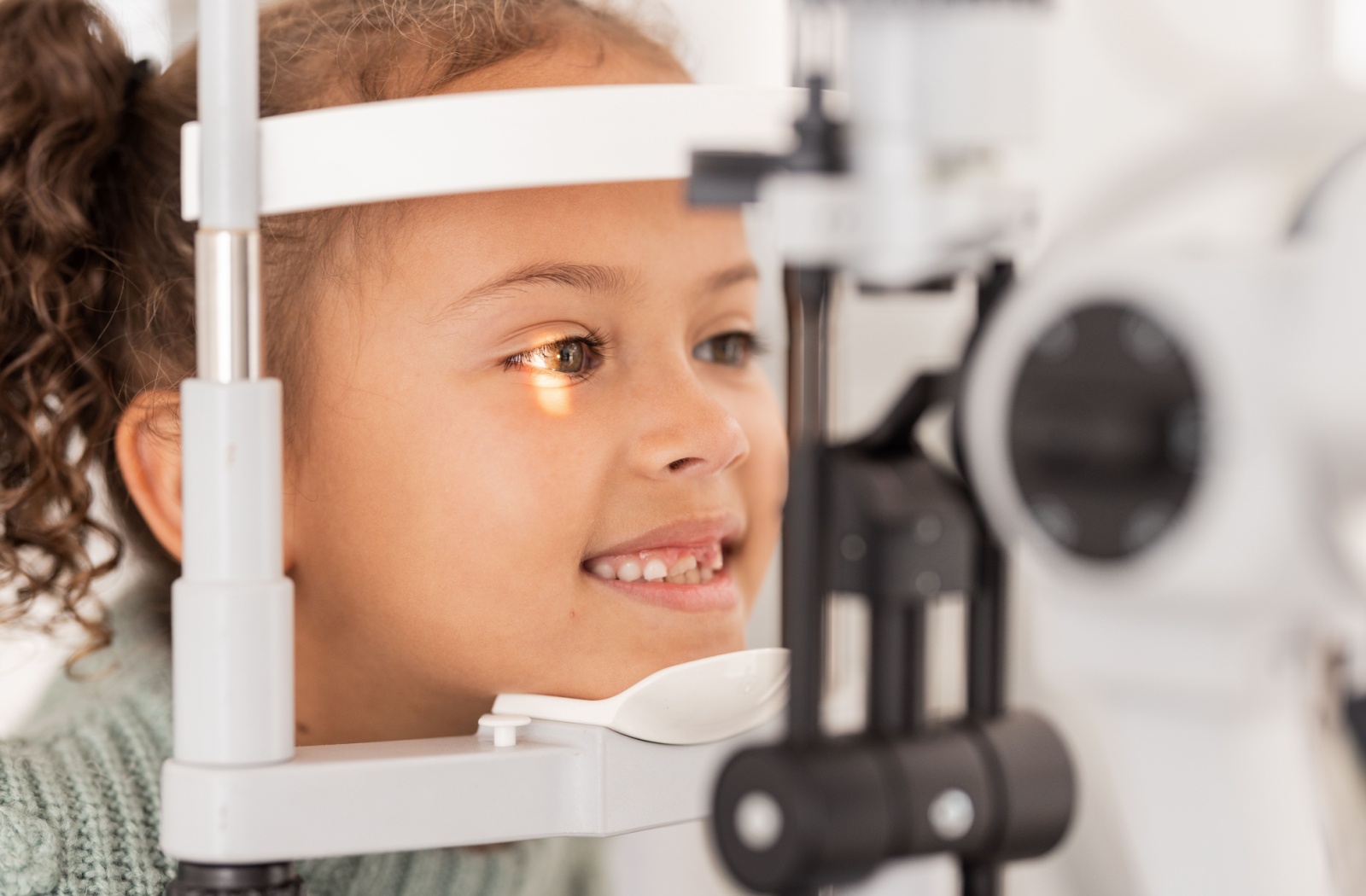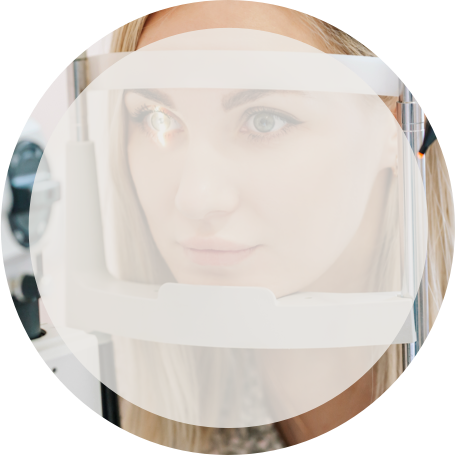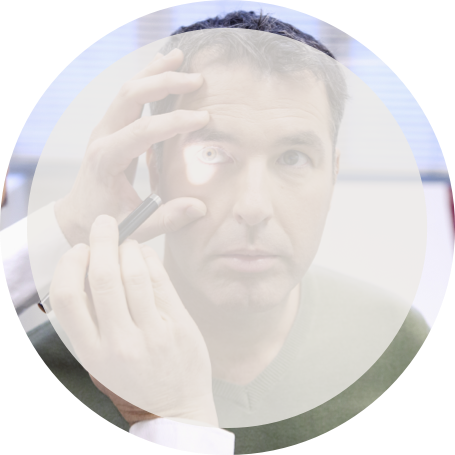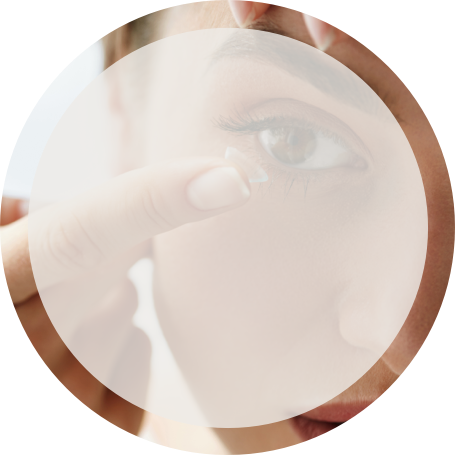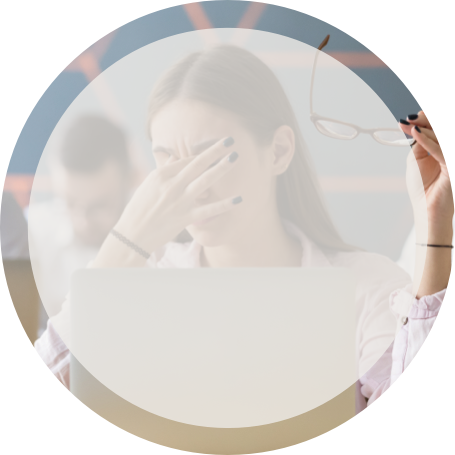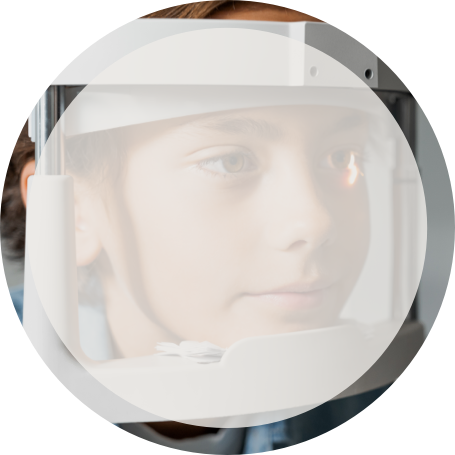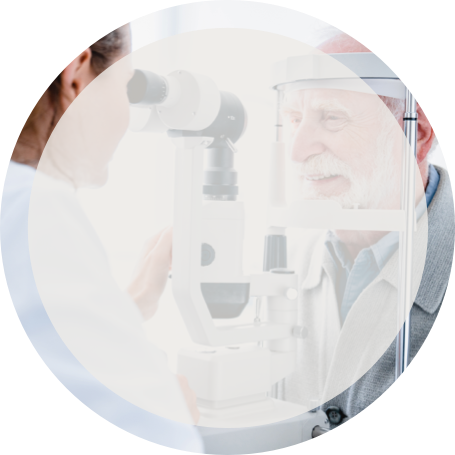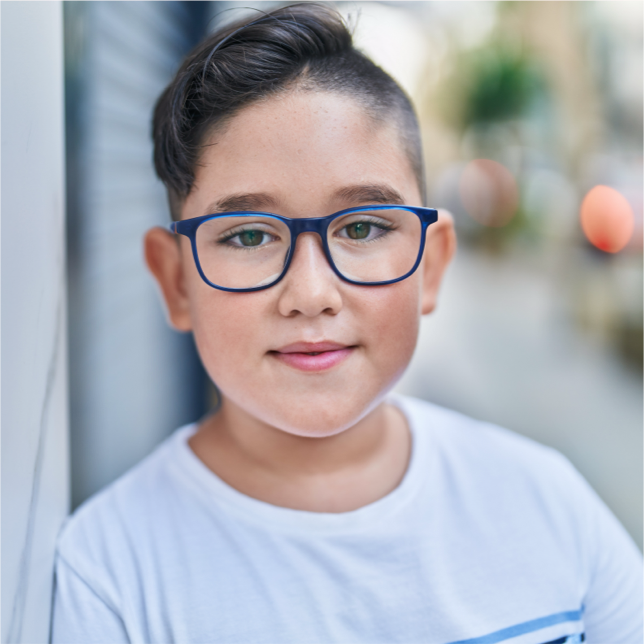Myopia, more commonly called nearsightedness, can affect people of all ages. It’s an extremely common vision problem known to make seeing at a distance much more difficult. But myopia isn’t just about vision. It can have lasting impacts on a child’s eye health.
Myopia tends to develop in early school-age years. Then, it progresses until early adulthood. Over the years, a child’s eyes develop further and their vision worsens. Fortunately, through myopia control, you can reduce how much their vision worsens and preserve their future quality of life.
What Is Myopia?
Myopia begins with the shape of the eye. For vision to be clear, light needs to focus directly on the retina, the tissue at the back of the eye. The shape of the eye and the cornea are directly responsible for this—they refract light so it focuses on the correct point.
However, an eye with myopia is slightly longer than usual, or the cornea is too curved. This causes light to focus in front of the retina instead of directly on it. This makes it harder to focus on something at a distance, even if nearby objects appear clear at first.
This is myopia, also referred to as nearsightedness. It’s a common refractive error, and it’s one of the reasons why some people need glasses or contact lenses to correct their vision.
Myopia tends to develop in early childhood and worsen over the years. Around the age of 20 or so, the eye stabilizes, and vision tends to remain roughly the same. It’s unusual for adults with myopia to notice significant changes in their vision—myopia doesn’t tend to worsen past adulthood.
How to Tell If a Child Has Myopia
Catching myopia early is important. The sooner it’s identified, the sooner steps can be taken to slow down its progression. However, spotting myopia isn’t always the easiest task.
If you’re concerned about a child’s vision, watch for:
- Squinting or tilting their head to see distant objects clearly
- Complaints of frequent headaches or eye strain
- Holding books, phones, or tablets very close to their face
- Difficulty seeing the whiteboard in school or struggling to read faraway signs
If these signs sound familiar, it’s time to book a comprehensive eye exam. Early detection means there’s more time for treatment options.
What Causes Myopia?
Myopia is becoming more common worldwide. It’s estimated that by 2050, about 50% of the global population could be living with this refractive error. With so many people affected, many people find themselves wondering, “What causes myopia?”
First, genetics play a big role. If one or both parents have myopia, there’s a higher chance their child will develop it too. But it’s not just family history—environmental factors matter as well.
Kids who spend long hours inside focusing on nearby tasks are at a higher risk. This link isn’t fully understood yet, however. When children spend at least 2 hours a day or more outdoors, they’re much less likely to develop myopia.
Regardless of the cause, myopia isn’t just a short-term problem—and it’s not just about vision, either. People with myopia are at a higher risk of long-term problems like glaucoma, cataracts, and even retinal damage.
Fortunately, there’s an easy way to help a child with nearsightedness: myopia control.
How Does Myopia Control Work?
Myopia control is a group of special strategies designed to slow how far a child’s eye grows. The sooner this treatment is started, the more effective it is. With myopia control, you can protect your child’s future vision, and it all starts with a visit to the optometrist.
There, your optometrist can examine your child’s eyes. Then, they’ll likely recommend a mix of:
- Atropine eye drops
- MiSight lenses
- Orthokeratology
So how do these work?

Atropine Eye Drops for Myopia Control
Atropine eye drops are an extremely popular way to help with myopia. These drops are entirely safe in specific dosages. They relax the focusing muscles in the eye, which steadily slows the eye’s growth.
When used daily, these drops can significantly slow myopia’s progression. However, they’re often recommended alongside other myopia control techniques. This makes it significantly easier to address myopia with a well-rounded approach.
MiSight Lenses for Myopia Control
MiSight contact lenses are soft contact lenses specially designed for children with myopia. But they’re a little different than other lenses—they don’t just correct vision.
These lenses use a dual-focus design to include several prescriptions in a single lens. One of these corrects their distant vision, while the other sends light signals to the outside of their retina. Over time, these extra signals help slow the eye’s progression and preserve more of a child’s future vision.
MiSight lenses are comfortable, safe, and easy for kids to adapt to. They’re worn just like regular daily-use contact lenses, so kids can pop them in before school and remove them at night. It’s a practical option that works for children!
Orthokeratology for Myopia Control
Orthokeratology, or ortho-k, is another non-surgical approach to myopia control. This uses special contacts—but they’re not worn during the day. Instead, ortho-k lenses are worn while a child sleeps.
These lenses apply gentle amounts of pressure to their cornea. They steadily reshape the eye so light focuses properly on the retina, reducing myopia’s effects. These lenses are extremely effective, and they’re a popular choice.
The vision correction from ortho-k lenses lasts all day long—so kids don’t need to wear contacts or glasses while they’re awake. Slowly, their eye reverts to its natural shape, and the lenses are placed back in.
Taking Control of Myopia—Together
Myopia is a common problem, but it can be effectively managed with our help. Whether it’s using atropine drops, MiSight lenses, or ortho-k, your child has options.
Our team at Family Vision Care is ready to protect their future vision, and we’re happy to help you and your family. Book an appointment with us today, and together, we can keep your child’s vision clear.

